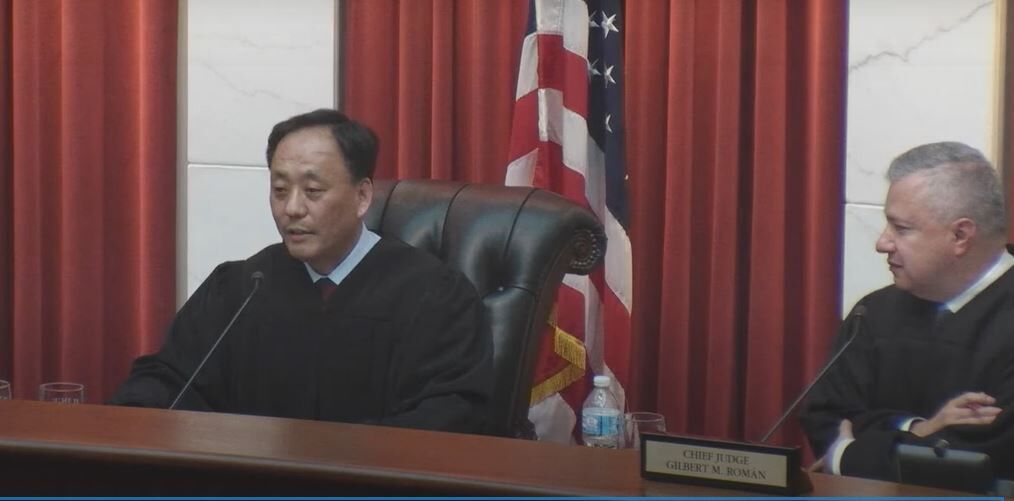Appeals court overturns convictions of mentally ill man who represented himself

An Arapahoe County judge improperly allowed a mentally ill man to represent himself at trial, stating explicitly that the defendant was “making no sense whatsoever” before letting him proceed alone, Colorado’s second highest court ruled in ordering a new trial.
Then-District Court Judge Michael Spear attempted to convince David Antonio Ruffin that he would be “a fool” to represent himself, but Ruffin insisted he was “stubborn” and was determined to go without a lawyer in order to “humiliate the district attorney.”
Despite Ruffin’s comments, a three-judge panel for the Court of Appeals agreed Spear did not ensure Ruffin relinquished his constitutional right to counsel knowingly and intelligently. Moreover, it was clear Ruffin’s mental health was an issue.
“Despite these indicators, the court failed to inquire, as it should, into how Ruffin’s mental condition could affect his understanding of the consequences,” wrote Judge David H. Yun in the panel’s Aug. 10 opinion. The panel could not conclude Ruffin had a “rational and factual understanding of the proceedings.”
Case: People v. Ruffin
Decided: August 10, 2023
Jurisdiction: Arapahoe County
Ruling: 3-0
Judges: David H. Yun (author)
Anthony J. Navarro
Jaclyn Casey Brown
Background: Appeals court finds Arapahoe judge mistakenly allowed man to represent self at trial
Ruffin was incarcerated in the Arapahoe County jail’s mental health ward when he allegedly grabbed the hand of a nurse who was sliding medication through his cell door. A deputy who accompanied the nurse allegedly saw Ruffin masturbating immediately afterward. Prosecutors charged him with assault and indecent exposure.
After the parties disputed Ruffin’s mental condition, Ruffin asked in October 2019 to go to trial “pro se,” or by himself.
“This case is kind of one of those cases where it’s so obvious that I didn’t commit the offenses,” he said. “I believe the average person could defend themselves in this case.”
In Colorado, judges must ensure a defendant understands the nature of the charges, the range of punishments, possible defenses and other facts essential to the case before allowing him to proceed pro se. There are also several inquiries a judge should make, including the defendant’s education level and whether he understands the risks involved in representing himself.
Spear provided some of that information to Ruffin, warning him that he faced a “possible prison sentence” and that Ruffin would be held to the same standard as a lawyer.
“You would have a fool for a client if you represented yourself,” Spear said. “I’m not going to stand in your way. You’re just going to be alone at that table.”
“I know you’re right,” Ruffin responded. “I’m so stubborn that I would still go pro se, if that’s how you feel.”
After Ruffin indicated he wanted “advisory counsel” who could consult with him, he elaborated that his personal goal “is to humiliate the district attorney. Because I believe this case is absolutely bogus. I didn’t assault anybody. The video footage shows that I didn’t even touch this woman’s hand. And it’s not even the right cell.”
“You’re making no sense whatsoever, Mr. Ruffin,” Spear said. “This is a courtroom. It is not a boxing ring. It’s not some kind of athletic event. It’s not something where I’m going to allow one side or the other to show the other side up and humiliate them, as you’ve indicated. You understand that?”
“No,” said Ruffin.
Ruffin proceeded to trial unrepresented. He asked jurors if they believed “nonhuman entities could already exist on earth” and if lawyers and police officers “could discretely be Satanists.” He also claimed he cures cancer. Jurors convicted him and Ruffin received two years in prison.
On appeal, Ruffin’s attorney criticized Spear for letting Ruffin “persist with his fantasy that he could easily win the case and humiliate the prosecutor.” Ruffin also submitted a brief to the Court of Appeals himself, deeming his own legal defense “so unintelligent, as to raise alarm.”
The government countered that Ruffin, despite his “eccentric beliefs,” did a decent job of representing himself.
“The record does not suggest that Ruffin was incapacitated,” wrote Haley Dutch with the Colorado Attorney General’s Office.
The appellate panel was unconvinced. It pointed out Spear had not correctly advised Ruffin about the consequences of proceeding pro se. Spear mistakenly said prison time was possible, when it was, in fact, mandatory. He did not let Ruffin consult with a public defender or ask key questions about Ruffin’s potential medications or education level.
Moreover, Yun wrote, Spear did not address Ruffin’s apparent mental health issues at the time Ruffin gave up his right to counsel.
“When a district court is put on notice that a defendant is susceptible to mental problems, the court should inquire as to how the defendant’s mental condition could affect his understanding of the consequences of a waiver,” Yun explained.
The panel ordered a new trial.
The case is People v. Ruffin.














